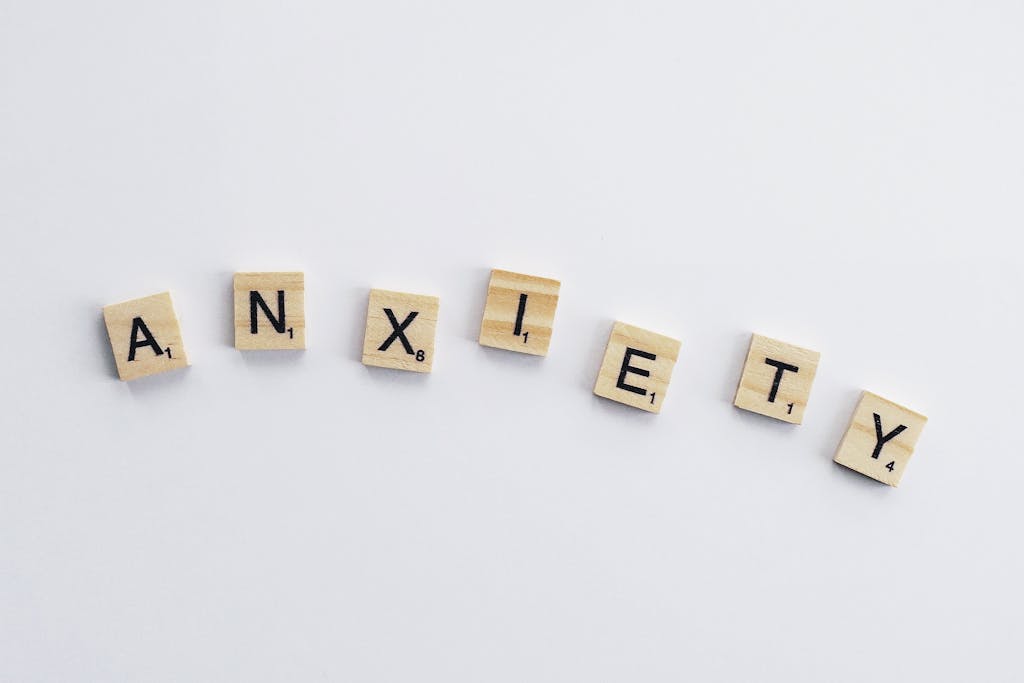
Press PLAY to listen to this post.
If you’ve ever taught kids yoga, you know the scene: during a 3-legged downward dog, a child gleefully exclaims, “My dog is peeing!”—complete with sound effects and uncontrollable laughter. It’s these moments that call for deep breaths, redirection, and a dose of positivity.
Turns out, playful "potty talk" isn’t just for laughs—it can be a window into the fascinating power of words. In fact, science shows that even adults benefit from expressive language, including swearing! Studies have found that letting out an R-rated word can trigger hypoalgesia—reducing sensitivity to pain. While “fudge” may not have the same impact, a well-timed curse can help you cope with physical discomfort and even emotional strain. Silent swearing? Still under scientific review.
Of course, if colorful language isn’t your thing, positivity can still shine through. Research suggests that learning strategies like gratitude, savoring, and positive reappraisal—finding the bright side of a situation—can significantly boost well-being. These tools were featured in NPR's Stress Less series, where Judith Moskowitz’s team demonstrated how teaching positivity skills improves stress management.
So, whether it’s potty talk, positivity training, or another round of downward dogs, remember the joy and resilience that humor and mindfulness bring. Sometimes, the best reset begins with a giggle—or maybe a little @$%!

Press PLAY to listen to this post.
It’s still... May and many of us find ourselves in a whirlwind: wrapping up the school year, juggling work demands, and attempting to keep pace with life’s relentless rhythm. This "marathon month" can often leave us feeling drained and depleted - especially for teenagers!
Enter the concept of burnout, or more specifically, betterment burnout—the overwhelming fatigue that stems from striving for endless self-improvement and perfection. Hello moms and daughters?!
Psychologist Alicia Hodge describes betterment burnout as trying to fix negative feelings, such as loneliness or emptiness, through rigid wellness routines. When the pursuit of perfection takes a toll, it can leave you feeling frustrated, inadequate, and utterly exhausted. Sound familiar?
Here are three practical ways to reset your mind and habits, so you can cross the May finish line with energy and resilience.
1. Set Boundaries That Honor Your Energy
Prioritize what matters most, and let go of perfectionism that eats away at your well-being. Show up as your best and authentic self.
2. Build Yoga Breaks Into Your Day
Whether it’s a quick stretch or a moment to breathe deeply, taking intentional breaks can replenish your mental and physical stamina.
3. Create Personal Space for Self-Care
Recharge with activities that bring you joy—reading, meditating, or simply resting. Allow yourself to just be. Even 5-10 minutes makes a big difference!
After implementing these burnout busters, reflect on how you feel physically and mentally.
Perhaps the most powerful mindset shift is recognizing: I think I’m doing enough, and maybe I am enough. By embracing that truth, you can turn this marathon into a mindful, manageable journey.

Press PLAY to listen to this post.
May is Mental Health Awareness Month—a time to highlight the importance of emotional well-being at every stage of life, including childhood. Mental health plays a vital role in shaping a child’s confidence, relationships, and ability to navigate challenges. Alarmingly, 1 in 13 people globally suffers from anxiety, making it one of the most common mental health disorders worldwide.
That’s where kids yoga steps in as a powerful tool. Yoga isn’t just about poses—it’s about cultivating mindfulness, emotional balance, and resilience. For younger children, playful movements like butterfly and cat-cow poses help them channel energy, express creativity, and learn self-regulation in a fun way. Teens can benefit from calming practices like deep breathing and restorative poses, which help manage stress, boost focus, and foster a sense of self-worth during a time of self-discovery.
Studies show that integrating yoga into a child’s routine can reduce symptoms of anxiety and depression, improve sleep, and encourage a more positive outlook. It’s a practice that supports emotional growth and equips kids with lifelong tools to care for their mental health.
This May, let’s honor Mental Health Awareness Month by introducing kids to the joys and benefits of yoga. Together, we can nurture healthy minds, strong bodies, and resilient spirits—one pose at a time. We'll show you how here.

Press PLAY to listen to this post.
Mother’s Day is a time to honor the incredible bond between moms and their children. What better way to celebrate than through the playful, calming practice of kids yoga? Sharing a yoga session together can be a unique way to connect, create joyful memories, and embrace wellness as a family.
Through poses like partner trees, heart-to-heart breathing, or even laughter yoga, moms and kids can deepen their connection in a fun and meaningful way. These moments aren’t just about movement—they’re about creating space for love, mindfulness, and gratitude.
Kids yoga also provides an opportunity for moms to slow down and recharge. With life’s daily demands, taking time to breathe, stretch, and laugh together reminds both kids and moms of the importance of presence and self-care.
This Mother’s Day, step onto the mat and celebrate the strength, grace, and love that make the mother-child relationship so special. Namaste to all the amazing moms! 🌸🧘♀️✨
We have two special Mother's Day classes in San Francisco and in San Rafael on Sunday, May 11.
